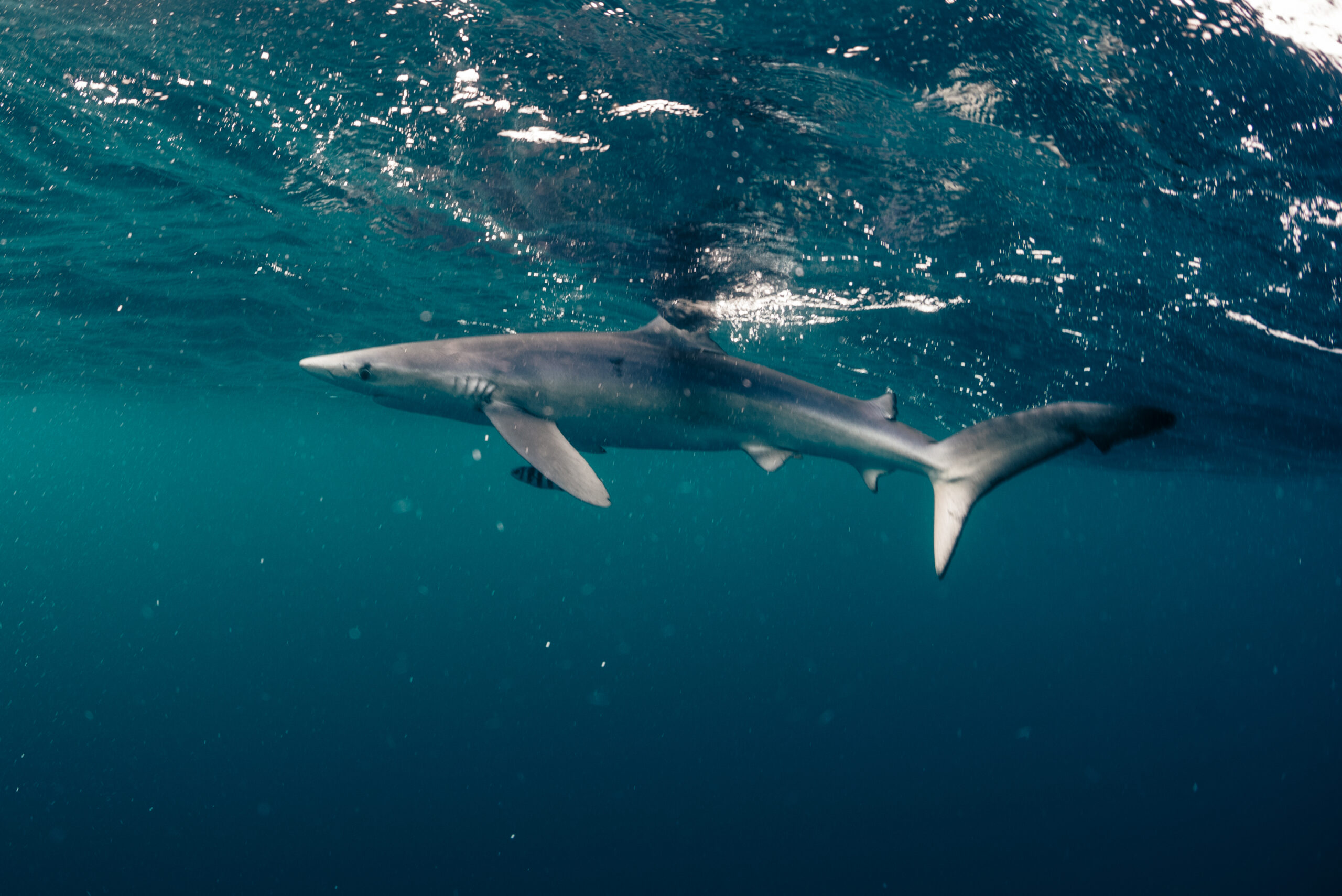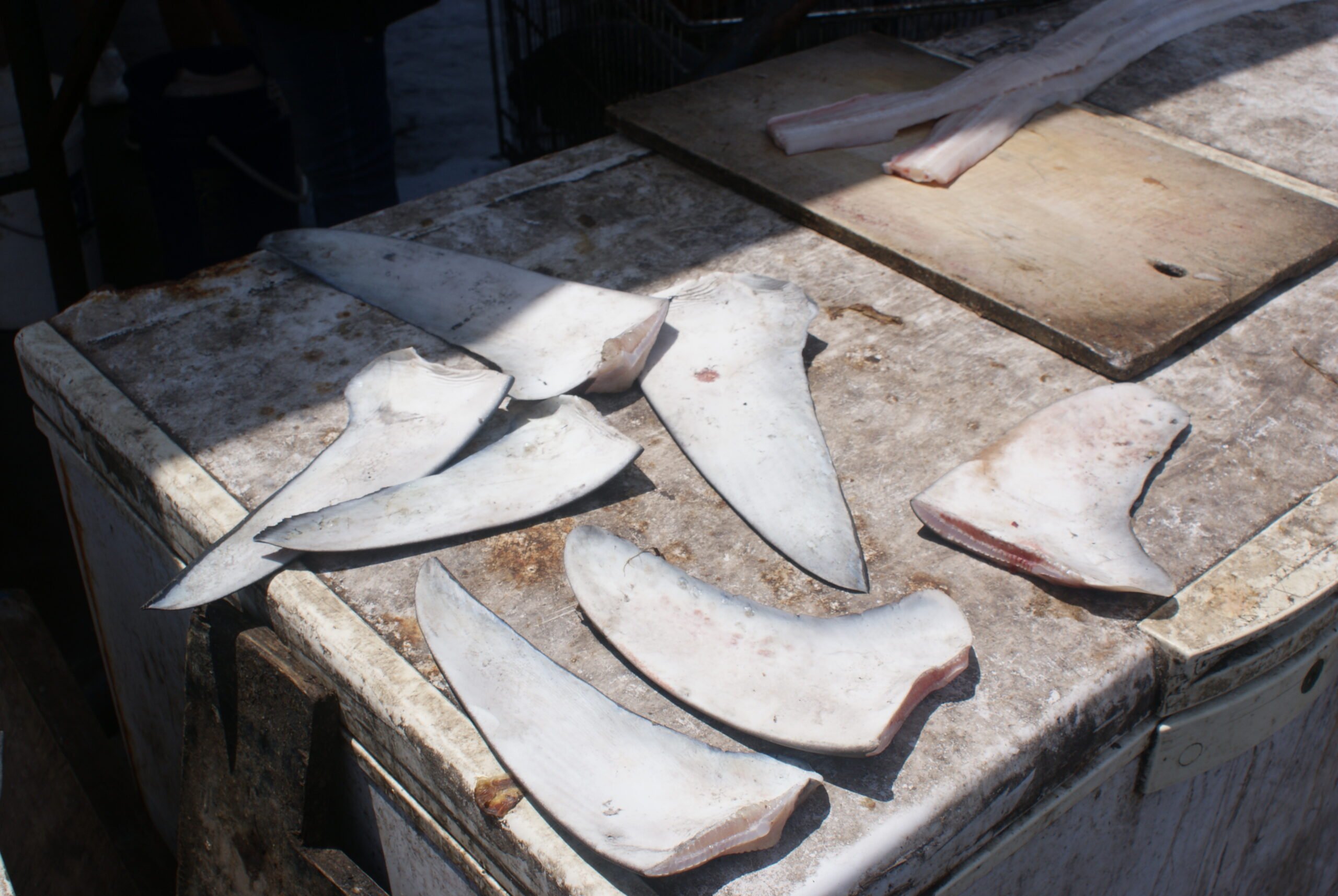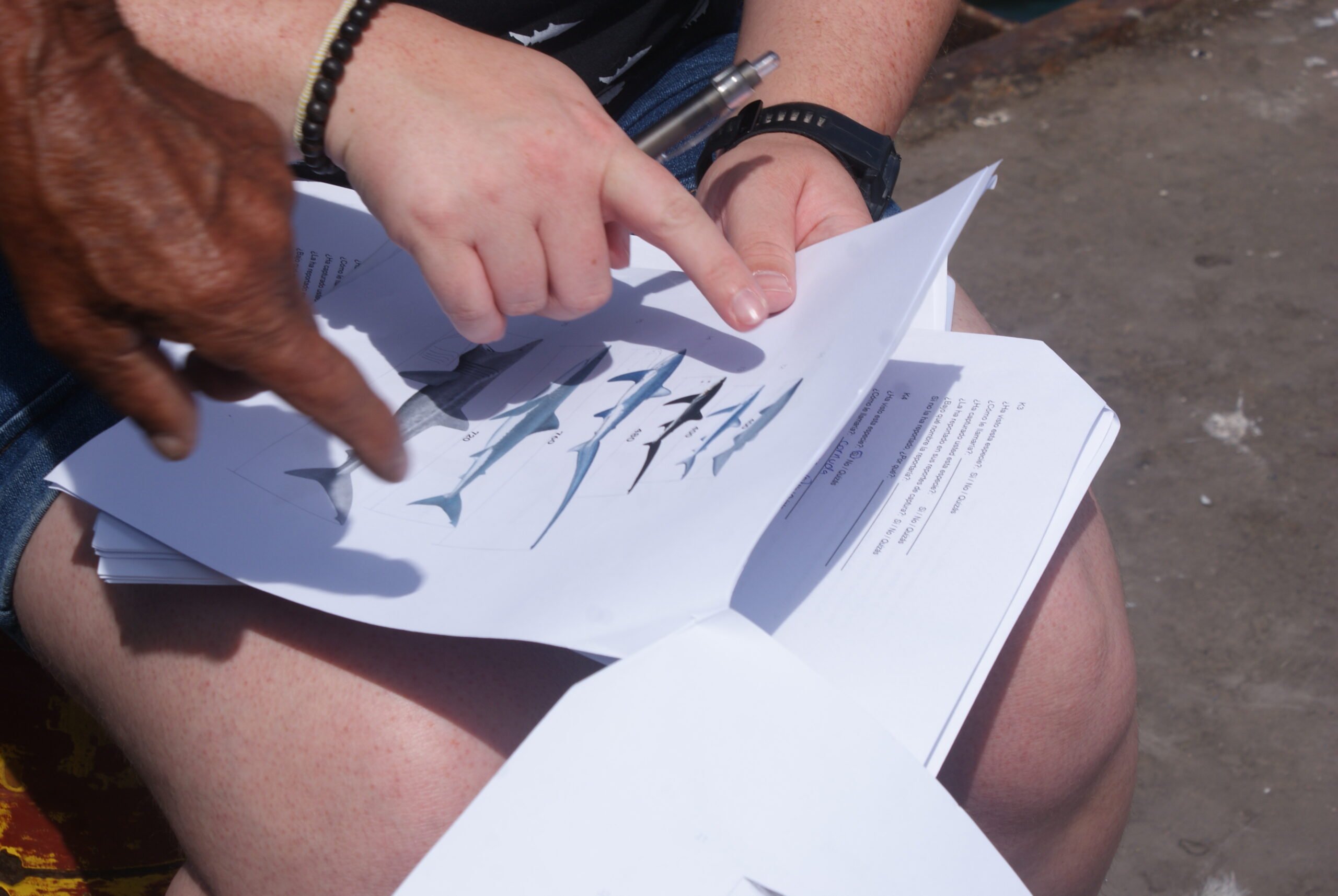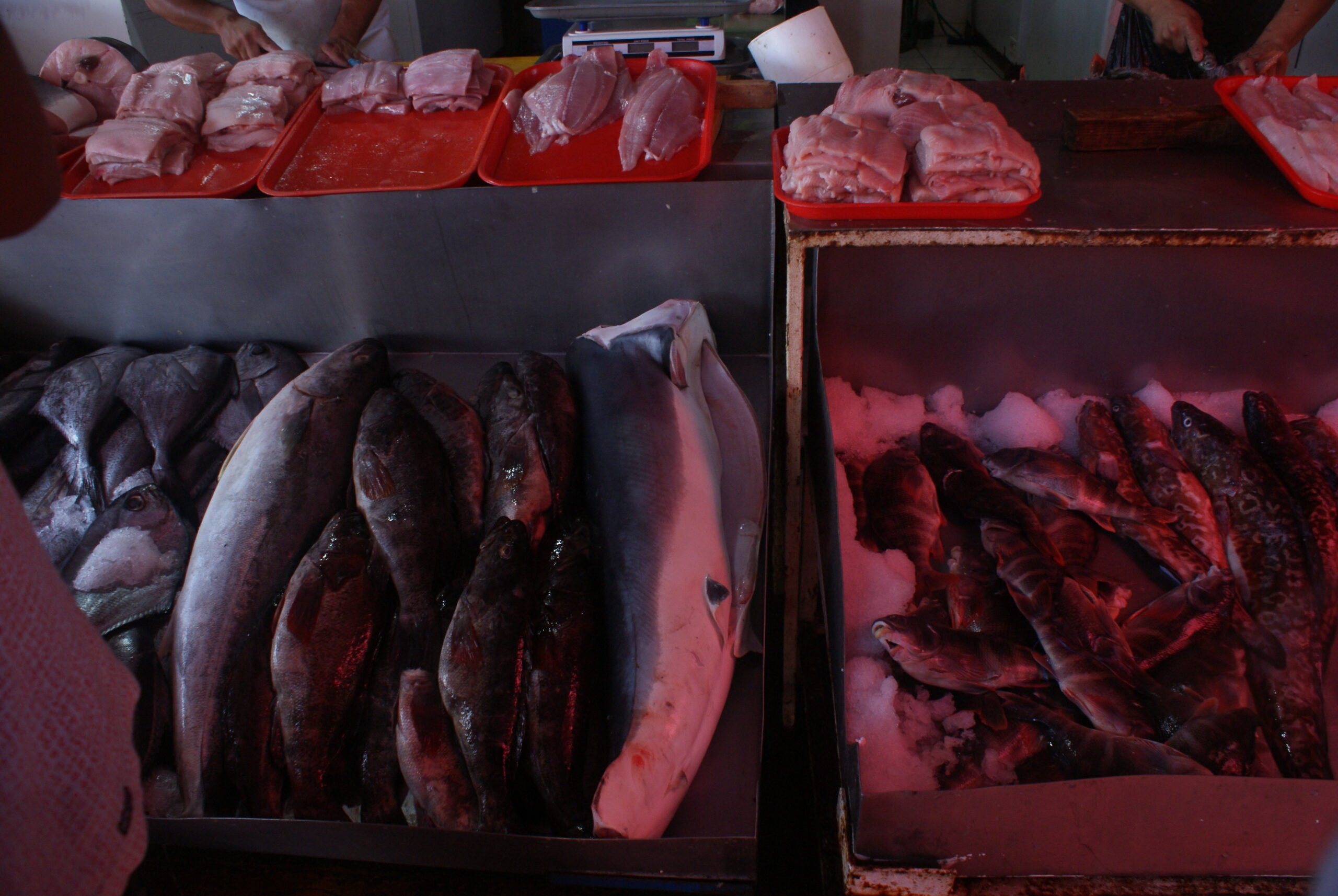Chile’s shark market: What is being sold?
Sharks play a crucial role in maintaining the balance of marine ecosystems, but their survival is increasingly threatened by human activities. In Chile, artisanal fishers are the only ones allowed to catch sharks, as long as they have the permits. The practice of shark finning—removing the fins and discarding the live, mutilated shark back into the ocean—was banned almost 15 years ago, marking an important step in protecting these vital species. However, the journey toward sustainable shark conservation remains fraught with challenges.
Despite the ban on finning, shark fins from Chilean waters are still finding their way into international markets. There are two ways in which this occurs: legally, by having a permit to catch sharks, and bringing the animal with its fins to port, later removing them; and illegally, by either selling a whole shark without a permit, or by illegal finning, regardless of permits. This points out the need for stricter enforcement and better traceability in the supply chain. Additionally, some regions in Chile have developed markets for shark meat, where sharks are directly targeted for local consumption. In these areas, the sale of sharks is often (not always) legal, but the challenge lies in ensuring that all catches are properly reported to regulatory authorities. According to our interviews and interactions with fishers, the targeted species are pelagic sharks such as blue sharks (Prionace glauca), mako sharks (Isurus spp.), Porbeagle shark (Lamna nasus) and thresher sharks (Alopias spp.). Sadly, most of these species are either vulnerable or endangered according to the IUCN’s red list.

A blue shark (Prionace glauca) - one of the targeted species according to artisanal fishermen in Chile. Photo © Sebastian Staines | Save Our Seas Foundation
On another note, in most cases, sharks are caught as bycatch during fishing operations targeting other species. Many of these sharks are discarded at sea and never make it to port, creating a significant gap in reporting. The main issue here is, most of these sharks are already dead by the time they are found. This unrecorded bycatch means that the true impact on shark populations remains unknown, making it difficult to assess the health of these species or design effective conservation strategies.

Shark fins that are sold on the market despite the ban on finning in Chilean waters. Photo © Valentina Romagnoli Correa
To complicate matters further, not all sharks that are brought to the market are reported through official channels, especially as most fishers don’t apply for shark fishing permits, and hence, would get in trouble if they reported. This under-reporting undermines efforts to manage shark populations sustainably and track the effectiveness of conservation policies. Sadly, our original hypothesis has turned out to be true: most shark catches are not being reported by artisanal fishers. Transparency in reporting is essential to ensure that shark populations are not overexploited and that fishing practices comply with existing regulations.

Documents used in interviews and interactions with fishers. Photo © Valentina C. Romagnoli
Hopefully this study can serve as a basis for local authorities to reconsider the catch report system to properly represent shark mortality in the industry.
While these findings highlight significant challenges, our team is actively preparing a comprehensive report and proposal for local authorities. Our goal is to bridge the gap between shark catches and reporting, paving the way for a clearer understanding of the situation. By doing so, we aim to support more effective conservation efforts and ensure a brighter future for shark populations.

Sharks sold alongside other fish caught by artisanal fishers. Photo © Valentina C. Romagnoli
